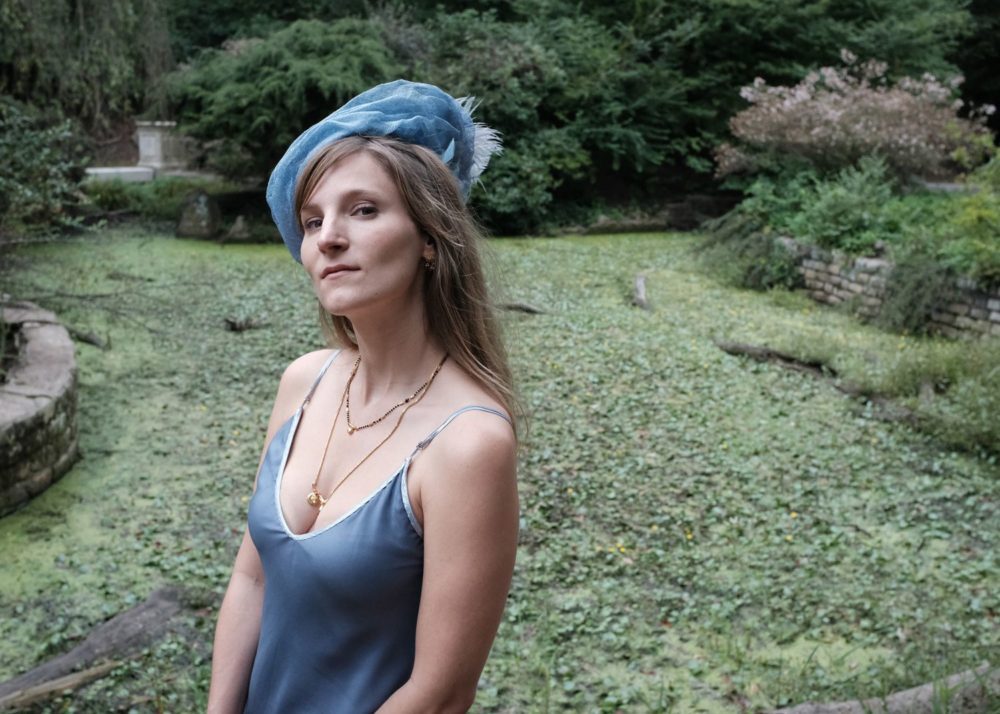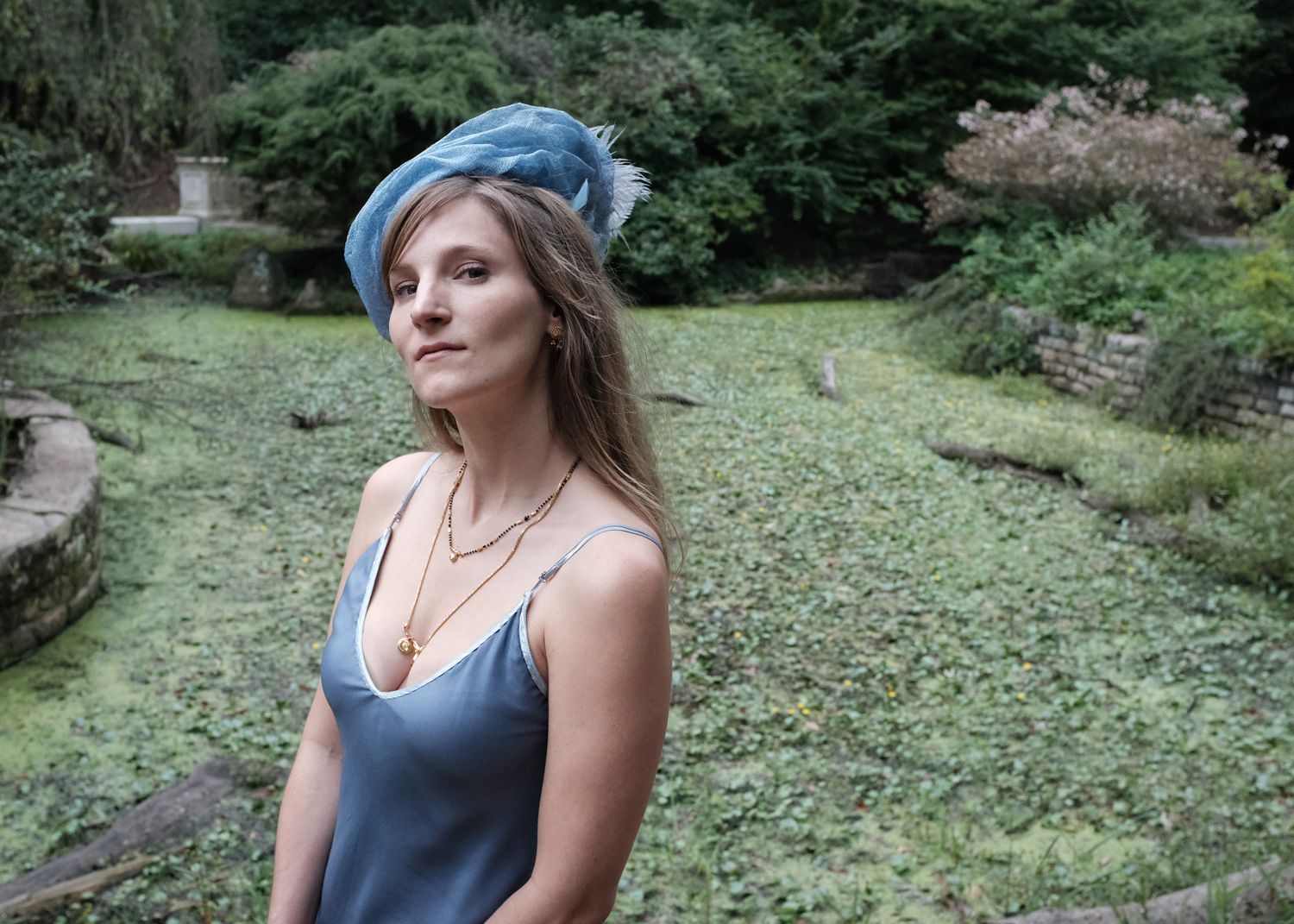

Change is an inevitable process, and Brooklyn-based soul singer Celeste Krishna knows that better than most. Born and raised in Birmingham, Celeste began her music career in Austin as the lead vocalist of bluesy folk rock outfit Monarchs. By 2012, the release of a mixtape called ft. Celeste showcased the singer’s versatility as solo act, arranging vocals over MF Doom, J Dilla, and Javelin-produced beats. As fun and off-the-cuff as the project was, it was the first step Celeste took in asserting ownership over her unique blend of musical influences – but there was still a balance to keep. The name she’d chosen for her band represented dysfunctional familial ties from her past, but over time, “it came to represent the community that I love – family and chosen family,” says Celeste. “My married name is Krishna so I started going by Celeste Krishna because… it’s a name in love.” Professionally, she needed a moniker that specifically represented her, but also the people she’s collaborated with since the beginning. “The whole thing came together and I use both. That way there’s Celeste Krishna, the artist, and Monarchs, the community of people that I work with to make music, and that way they’re in something outside of me. Monarchs is my musical family.”
Thus, Celeste Krishna & Monarchs have emerged from a chrysalis, releasing Prelude Red in 2017 to connect the beat-driven experiments of Celeste’s introductory mixtape with the ambitious project she’s working on now: a trilogy of albums centered on who she truly is at her core, tied to the color blue. “Celeste means sky blue in some romance languages and Krishna, the God, is normally shown with sky blue skin to represent divine consciousness,” Celeste explains. “I like the richness of those names, because it enshrines the art and celebrates and inspires me.”
With Blue Druids and My Blue Path still to come, My Blue House will arrive in September 2020, which includes “Wanna Be,” premiering today on Audiofemme. The track is more stripped back than her previous work, consisting of just voice and piano, but it’s more emotionally charged, unpacking trauma that she and a relative have both experienced. “I did one harmony but otherwise decided to keep it really raw. That was a kind of power move and I’ve never had a track where it’s just me and a piano, so that was exciting,” Celeste says. The intimacy of the track creates an almost tangible bubble between Celeste and the listener, its lyrics reading like stream of conscious affirmations countering self-doubt, depression, and feelings of entrapment.”I do a lot of processing in songwriting. It’s therapeutic to write; if I feel something and I can write it, it doesn’t scare me,” Celeste says. “I think sadness, pain, fear, anger and all the stuff that’s hard to feel isn’t so entrapping if you can sit with it… I wanted the song to go to a space where you almost bring it into your room and envision something new.”
Celeste is using the singles released ahead of the album to raise funds for various organizations that relate to the messages of her songs. It’s obvious that Celeste’s soulful style, with nods to gospel, jazz, and hip-hop, is heavily indebted to Black creators and culture, and because “Wanna Be” explores the vicious cycle of mental health lows, it made sense to release it as a benefit for the Loveland Foundation. Established in 2018 by author and activist Rachel Cargle, Loveland focuses on providing culturally competent mental health support and therapy to Black women and girls, saying “We see you, we hear you and we are invested in your healing.”
“The song is about mental health and ‘tending your garden’ is the whole metaphor. So I wanted to fundraise for a cause that helps people tend to their internal space,” Celeste explains. “The Loveland Foundation centers Black women and girls and that’s really important. The white friends I have and my white community and family have accessed a lot of mental health resources and they haven’t experienced a lot of barriers – they’ve had the money to pay for it or the insurance.” Celeste recognizes that unfortunately, that isn’t always the case for Black women.
With recent events reigniting the conversation around racial inequality, Celeste wanted to keep that dialogue going past a three-week news cycle. “It’s like a diet right? You’ve got to keep eating vegetables and growing for your own health as a person. So personally, there should always be something peppered into your reading list that teaches about anti-racism,” Celeste reasons, adding that the lack of diversity in her own upbringing made this extra important for her personally. “It’s a constant thing to check the racism that may come up in my own mind, and it’s important for people to understand that this is a long game. It’s life’s work.”
Loveland’s clear goals spoke to Celeste on a deep level. “Anything needs to be culturally competent when it’s a service like mental health or education. If there’s no cultural training then the service is not going to be as meaningful, it’s not going to work as well, and it could also be harmful,” she says. “Structural racism is so embedded in all of us. If we’re not aware of it and actively working against it then a therapist could be reinforcing racism towards a black client. This stuff can happen, will happen and has happened.”
Celeste’s next single focuses on education, so she’s currently looking for an education non-profit in Alabama with leadership directly from the community they serve. She’s also offering koozies to those who donate more than $15 to the charities she’s raising awareness for, printed with a twist on lyrics from Celeste’s song “Come On and Move Me,” which was featured in NBC’s Good Girls. “[They’re] gonna say ‘come on, come on and kooze me’ on the side… and if you follow me on Spotify I’ll sign your koozie!” she says.
Though the koozies are lighthearted, the mentality of ‘we can always do more’ runs deep in Celeste both in her life and her work. It’s for this reason that she’s aligned with the ethos of The Big Payback movement, which seeks restitution from record industry behemoths who’ve profited from underpaid – and sometimes uncredited – Black musicians. “I read about how racism plays into the industry and the way the history of music is told and how Black contributions have been erased from genres like country and bluegrass,” Celeste says. “So many of these record labels make so much money off Black art, [but the contracts] aren’t fair and that needs to be revised. A lot of these musicians have passed away unfortunately, but their families could benefit. Wealth and the accumulation of wealth is one of the biggest way structural racism plays out.”
Celeste is working on a format that better serves its artists, giving them more creative control and freedom of expression. Starting her own record label, Frances Lakshmi Records, she hopes a fair model that respects the artist will one day become the norm; My Blue House will be its first release, a joint venture with Blonde Records. In the meantime, Celeste hopes that “Wanna Be” will “give people hope for healing and remind them of their power” – and that the fundraiser will help The Loveland Foundation give Black women and girls the tailored support they need.
Follow Celeste Krishna & Monarchs on Facebook for ongoing updates.

